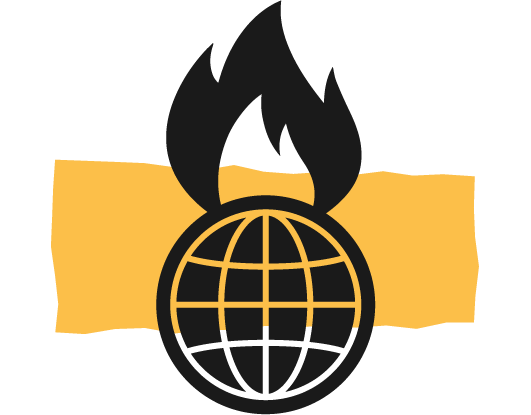Global North vs. Global South: The Climate Divide
We often think of the Climate Divide as a one-way street. The richer, industrialized countries of the north contribute more to climate change than do the developing countries of the south, and those in the south are left to deal with the consequences. Much has been made of the moral and ecological debt that the north owes the south, but even within this context, the thinking is often unidirectional.
What is the Climate Divide?
Broadly speaking, those who suffer some of the most dire consequences of climate change contribute the least to its causes. For example, while the United States, the EU, and China are responsible for 59% of global CO2 emissions, Brazil is responsible for just 0.9%, and the entire African continent is responsible for only 3% of those emissions[1].
Kodjo Ossah is a youth leader and climate activist from the West African country of Togo. In his Letter from Togo[2], he describes the crippling effects of climate change on the people of his region:
“Africa is being hit by more severe and more frequent heatwaves, bringing severe drought, especially south of the Sahel. We are also seeing floods, irregular rain patterns, and coastal erosion in countries near the coast. More volatile weather patterns are causing socio-economic damage, not just to cities, but to farmers and to agricultural production. That matters because most West Africans are farmers and live in rural areas.”
Youth leader and climate activist Kodjo Ossah
Due to a lack of resources and the effects of poverty, the people living in these areas often have little ability to escape the harsh conditions brought on by our changing climate.
Not just a problem for the South
Amath Pathe of the International Fund for Agricultural Development (IFAD) explains the bleak options that many Africans face due to climate instability: “If you don’t have resources, you will either be joining some terrorist group or trying to take a boat into Europe because you cannot cope.”[3]
These outcomes aren’t inevitable, but in order to mitigate them, we must address their root causes.
One of those causes that is mentioned in the Scientists Warning Into Action is a lack of food production at the local level. As the report details:
In Africa and the Middle East, where almost all additional population growth is projected to occur, rapidly increasing dependence on imported staple foods combined with widespread poverty heightens vulnerability to supply shocks, such as those increasingly caused by extreme weather events.
Hungry people are angry people: a strong relationship exists between supply shocks, the global food price index, and the incidence of violent unrest.
This is an area in which developed countries can help. But as the report notes, solving this problem “will require large investments in infrastructure, especially for irrigation, and widespread uptake of fertilizers to overcome phosphorus deficiencies, stem acidification, and replenish nutrients removed in crops.”
You can make a difference today
In the face of such challenges, it may be tempting to tune out. But if there’s one message that everyone needs to hear in the new report, it’s this:
Humanity has begun the social, economic, political, and technological initiatives needed for this transformation. Now, massive upscaling and acceleration of these actions and collaborations are essential before irreversible tipping points are crossed in the coming decade. We still can overcome significant societal, political, and economic barriers of our own making.
We need to send a clear message to all leaders - local, national, and global - that the solutions described in the scientists’ report have broad support, and we need to do it now.
You can show your support now by signing the Scientists Warning into Action paper.
This is not just another online petition. Rather, it is your opportunity to get involved with something that will reach global leaders directly and that involves the world's top scientists.
Please also note that ALL scientists are welcomed and invited to sign this paper, including those who graduated in natural, political, social, medical/health, engineering, economic, educational, or behavioural sciences.
If you are frustrated by the lack of action around climate change, this is your best chance to make your voice heard. As the report states,
Our biggest challenges are not technical, but social, economic, political, and behavioural. To have hope of success, we must accelerate collaborative actions across scales, in different cultures and governance systems, while maintaining adequate social, economic, and political stability.
In other words, the solutions are within our reach, but we won’t get there without your help.
Sign the scientists’ warning today to send your message to world leaders.
The situation is worsening as you read this, so please don’t wait!
[2] https://medium.com/the-climate-reporter/letter-from-togo-245dade59b48






